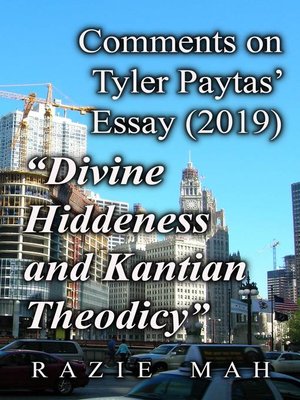Comments on Tyler Paytas' Essay (2019) "Divine Hiddenness as Kantian Theodicy"
ebook ∣ Intimations of Political Philosophy, #10 · Intimations of Political Philosophy
By Razie Mah

Sign up to save your library
With an OverDrive account, you can save your favorite libraries for at-a-glance information about availability. Find out more about OverDrive accounts.
Find this title in Libby, the library reading app by OverDrive.



Search for a digital library with this title
Title found at these libraries:
| Library Name | Distance |
|---|---|
| Loading... |
Tyler Paytas publishes "Of Providence and Puppet Shows: Divine Hiddenness and Kantian Theology" in the journal, Faith and Philosophy, in 2019. The subtitle captures the essence of the work, which ties together two questions that typically come from the same person. If God is just and loving, why not make Himself evident to everyone? If God is just and loving, then why is there evil in the world?
Of course, that person does not believe in Christ. The questions serve as an excuse for disaffiliation. Surely, a hidden God who allows evil cannot be perfect in love and justice.
These questions have been in currency for over two centuries. Immanuel Kant (1724-1805) explicitly dismisses the theodicies of his time. Kant addresses divine hiddenness as an aside. Yet, there is something clever in that aside that also applies to the question of moral evil, injustice and natural ruin.
Tyler Paytas presents a clear and convincing analysis. This re-articulation synthesizes a complementary vision, extending the argument into political theology.







